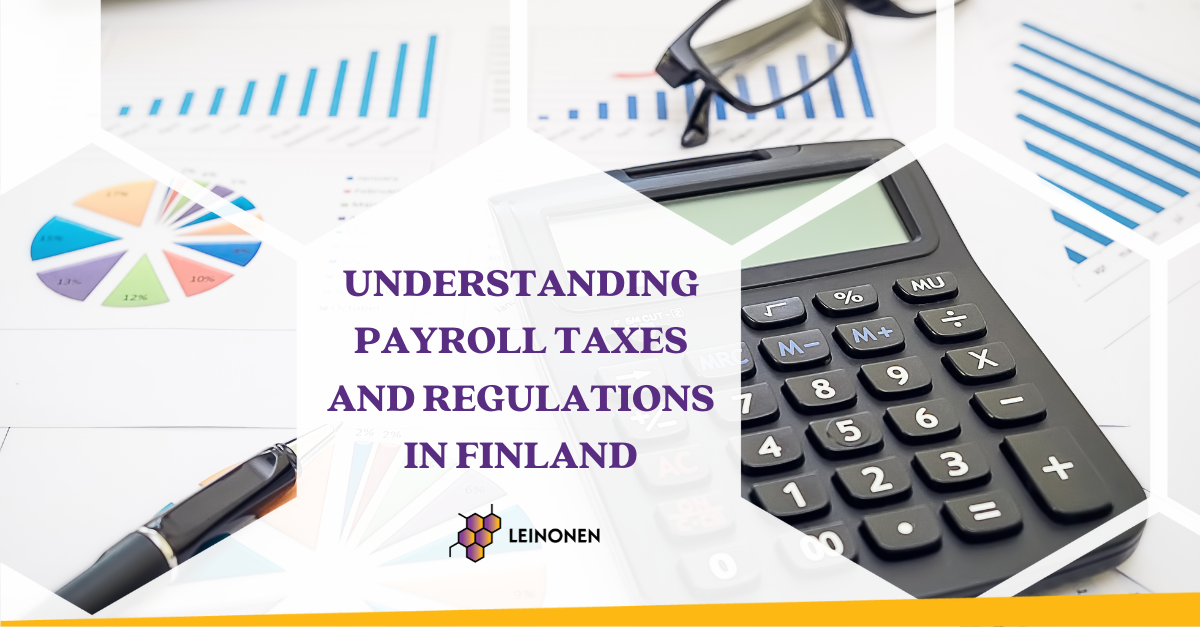Payroll processing is a crucial aspect of any organization’s financial operations, and it plays a significant role in maintaining the well-being of employees in Finland. The Finnish payroll system is subject to various regulations, including legislation and Collective Bargain Agreements (CBA), which employers must adhere to.
In this article, we will delve into the key aspects of payroll in Finland, including employee costs, minimum salaries, overtime regulations, work on public holidays, employee benefits, and some important considerations.
Employee Costs
Payroll calculation in Finland involves determining the net salary of an employee based on Finnish legislation and CBA agreements. Payroll accountants are responsible for this process, which includes calculating and reporting income, handling tax contributions, and communicating with authorities such as KELA (the Social Insurance Institution of Finland), trade unions, and insurance providers.
In Finland, employees have personal withholding tax contributions, unemployment insurance contributions (1.5% of gross salary for employees aged 17-64), and pension insurance contributions (ranging from 7.15% to 8.65% depending on age) deducted from their salaries. There may also be voluntary trade union contributions and compulsory distraint payments.
Foreign employees have specific tax and social insurance regulations based on their stay period and home country.
Minimum Salary
Finland does not have a legally mandated minimum salary. Instead, minimum wage levels are determined by the applicable CBA or are left to the employer’s discretion.
Overtime Regulation
Overtime work in Finland is defined as work performed in addition to regular working hours. Normal working hours are up to 8 hours per day and up to 40 hours per week. When these limits are exceeded, the extra hours qualify as overtime.
Overtime compensation in Finland is typically 50% or 100% of the hourly wage, and employers must pay it as additional compensation or provide equivalent paid time off.
Work on Public Holidays
In Finland, public holidays are considered paid time off. Working on Sundays and public holidays entitles employees to a 100% hourly wage, and CBAs may specify additional payments for work on certain holidays and eves, such as Midsummer, Christmas, and New Year’s Eve.
Employee Benefits and Taxation
Finnish employees receive various fringe benefits, such as company-paid phone, car, and housing benefits. These benefits are considered taxable (fictional) income, and employers are responsible for paying taxes, including withholding tax and social insurance contributions, based on the benefit’s value. As these benefits are processed as a part of payroll, then correct treatment is employers’ responsibility.
Employers in Finland can offer additional tax-free benefits to employees, such as public transportation or bicycle benefits (up to €1,200 per year), sport and cultural benefits (up to €400 per year), and voluntary pension insurance contributions (up to €8,500 per year).
Mandatory State Social Security Contributions
In addition to employee contributions, employers in Finland are required to make various contributions, including:
- Social insurance (1.53%)
- Accident and group life insurance (approximately 2%)
- Pension insurance (approximately 25% with employee’s contribution)
- Unemployment insurance (2.02% with employee’s contribution)
All these contributions are calculated based on the employee’s gross salary.
In conclusion, the Finnish payroll system is highly regulated, with various components that must be considered by both employers and employees. Adherence to the complex Collective Bargain Agreements and Finnish holiday regulations is crucial to ensuring accurate and compliant payroll processing. Understanding the intricacies of payroll in Finland is essential for businesses operating in the country to maintain legal compliance and support the financial well-being of their employees.
If you have any further questions on Finnish payroll or taxation questions, Leinonen Finland´s team is happy to help you https://leinonen.eu/fin/ .
Note: Employers and employees contributions are presented as 2023 values and they are subject to change annually!





